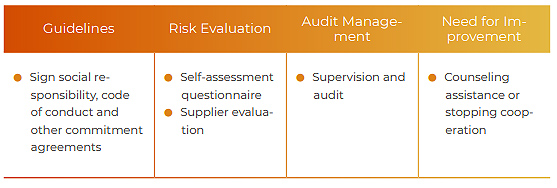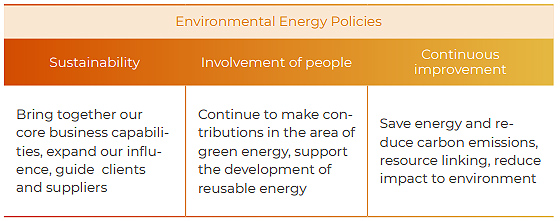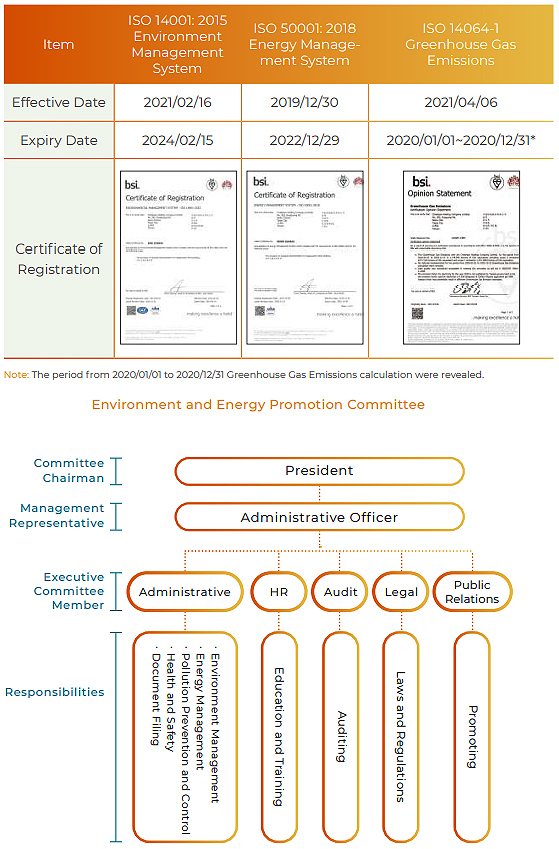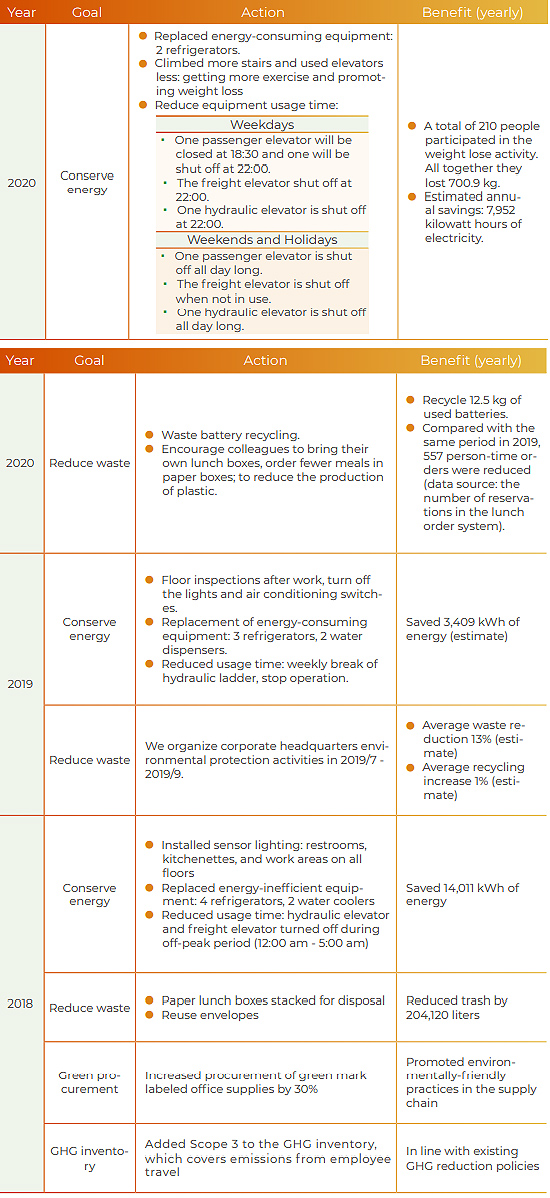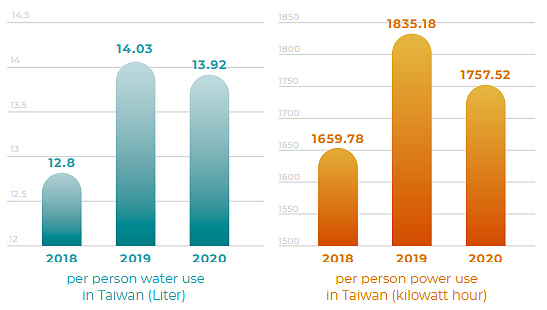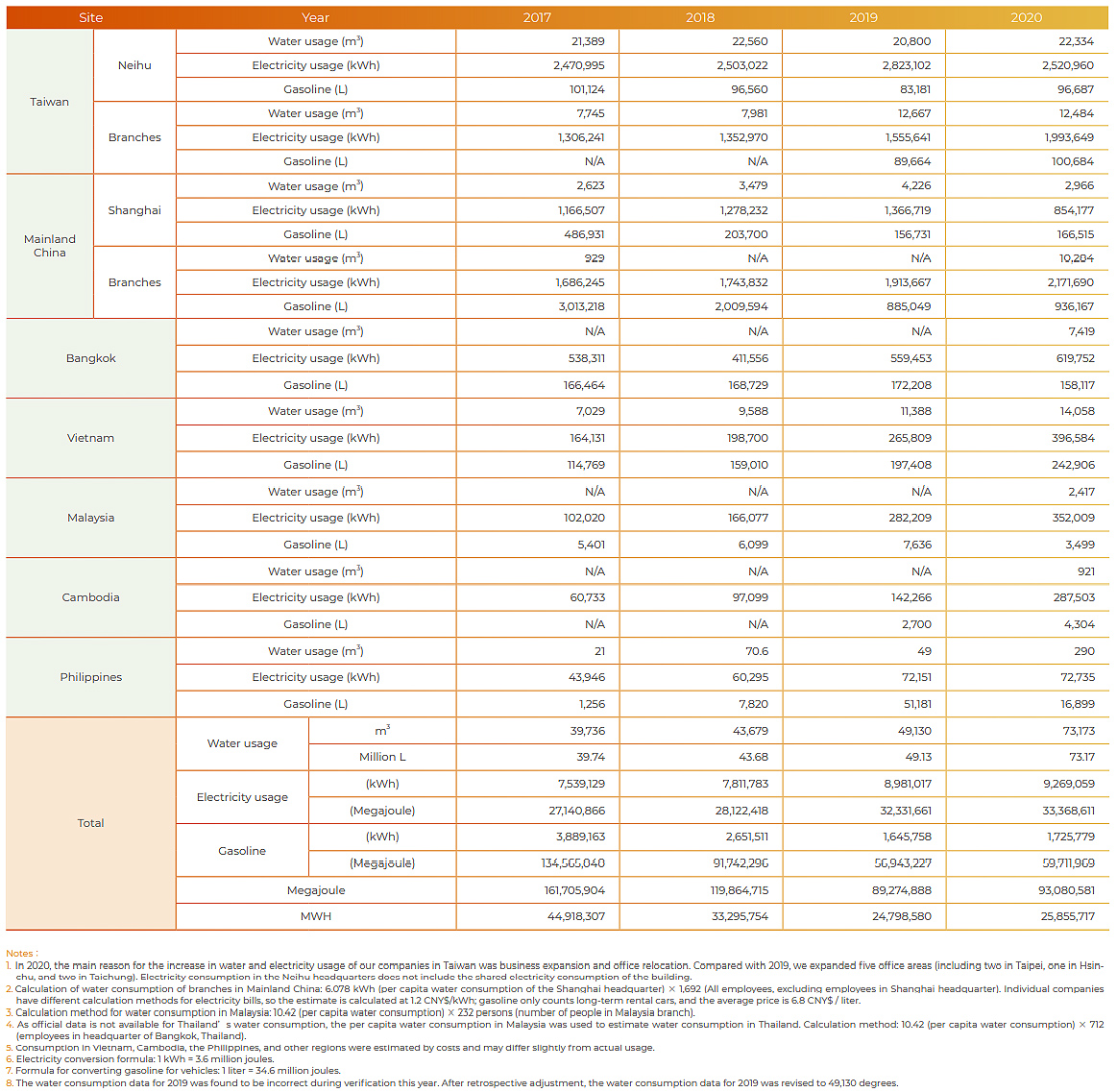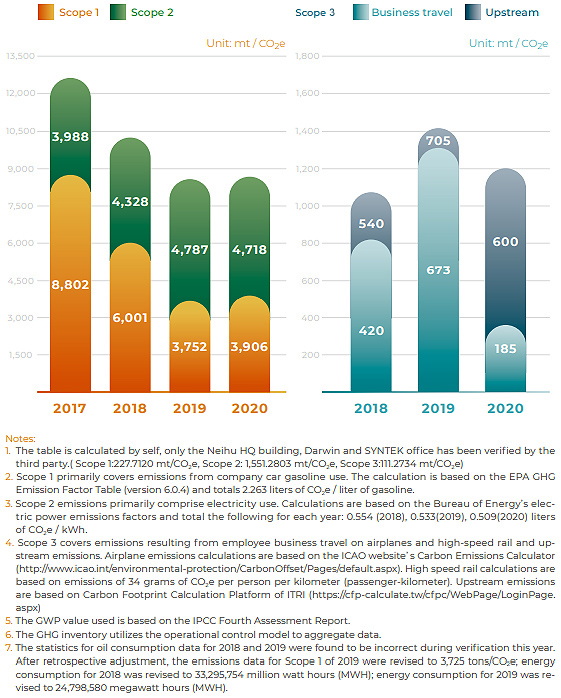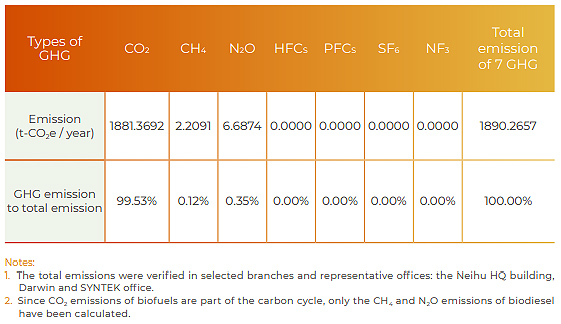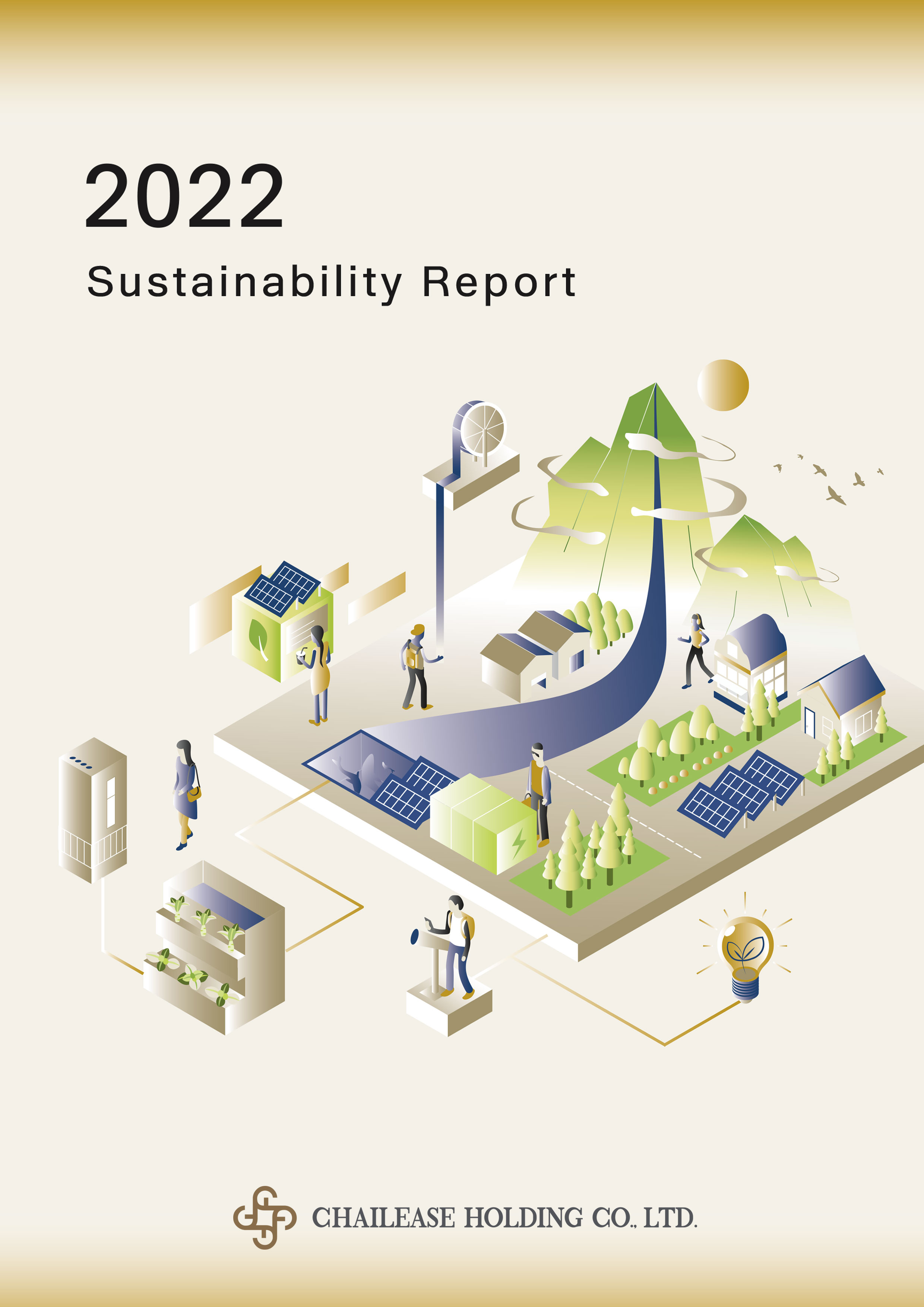Chailease Holding's various purchasing plans all select 100% local manufacturers as targets. Chailease Holding exerted greater influence on the supply chain by choosing local manufacturers as partners in all of its procurement cases. In 2014, we developed the Supplier CSR Guidelines, which specify the ethical standards for each supplier, and provide norms for respecting labor rights and maintaining sustainable development. In 2015, a new Supplier Code of Conduct was created, which added a breach of trust covenant requiring major suppliers in Taiwan to jointly promote corporate social responsibility to fulfill our common goals of achieving high moral standards, respect for human and labor rights, and promoting environmental sustainability.
The Company intends to disclose its Supplier Social Responsibility Policy on the company website and CSR Report in 2020. The purposes of the policy is to require the supplier to follow relevant regulations on certain issues, such as environmental protection, occupational safety and health, or labor human rights. The Company shall refuse to engage with suppliers who violate the Company's corporate social responsibility policy.
Major Rules Directions:
A. Uphold Human Rights: prohibit the use of child labor (under 16 years old), guarantee employee work hours and salary, and provide a harassment-free, discrimination-free work environment, respect workplace health and safety laws and regulations, establish an emergency disaster response mechanism, and improve protections against work disasters and occupational illnesses. In September 2018, the Chailease Human Rights Policy was approved and is a symbol of the company’s dedication to the maintenance of worker rights, opposition to any form of discrimination, commitment to providing a safe, healthy workplace, and establishment of a smooth and transparent communications channel.
B. Protect the Environment: establish an environmental management system, and set up a system to prevent pollution and energy-saving measures.
C. Protect Customers: No improper gain, respect for intellectual property laws and regulations, establishment of a confidentiality mechanism, protection of information related to customer business, technology, etc.
Strengthen Outsource Management Implement Safety and Health Education Training and Counseling for Contractors
In order to enhance the labor health and safety of Chailease Holding’s outsourcers, we not only require contractors to manage independently, but also implement safety and health education and training on the work and risks of contractors. We also ask our contractors to enhance their occupational safety and health management. Before high-risk operations, we implement hazard notifications and check personnel qualifications, equipment declarations, and work site control. We work together with our contractors to create a healthy and safe environment to reduce workplace hazards and risks and fulfill our corporate society responsibility. In 2020, there were a total of 433 safety and health education training and counseling sessions for Chailease Holding’s Solar Energy’s contractors. The total number of workers trained by our general contractors was 3,679, and the rate of safety and health education training rate was 91.7%.
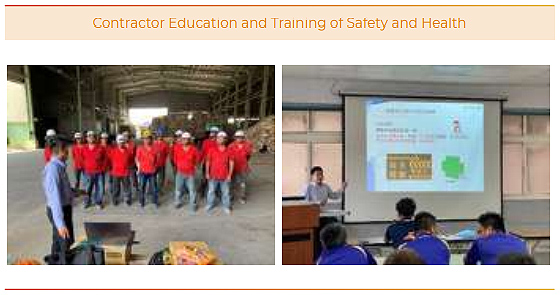
Subsidiary Chailease Energy Integration will Promote the Positive Cycle of Solar Photovoltaic Supply Chain
In order to drive a positive cycle of overall solar photovoltaic industry and supply chain and to exert a sustainable influence on our responsible supply chain, Chailease Energy Integration, a subsidiary of Chailease Holding, plans to invest in supplier sustainable management in 2021 and listed all solar power plants construction partners, include polysilicon materials and silicon crystals in upstream companies; solar cells and modules in midstream companies; inventory of suppliers and construction engineering materials and equipment in downstream companies, including system construction EPC manufacturers (engineering, procurement , construction, design, procurement, construction general contracting), surrounding aluminum brackets, steel structures, electromechanical panel manufacturers, monitoring manufacturers and other related industries.
At the same time, we work with partners to propose action plans based on environmental, social, and economic (ESG) aspects to spread positive momentum and help suppliers improve their sustainable performance.
Partner Action Plan
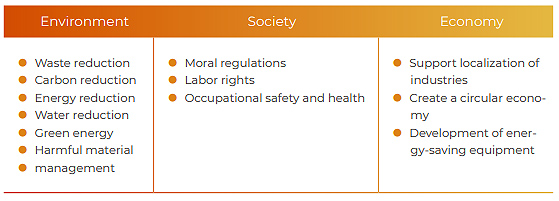
Chailease Energy Integration will formulate supplier management specifications and guidelines to require suppliers to fulfill their corporate social responsibilities, provide a safe working environment, value labor relations with human rights, comply with ethical operations, and promote environmental protection.
Chailease Energy Integration will systematically promote and evaluate supplier qualifications. We refer to the ESG positive list items, and conduct written reviews and on-site evaluations of suppliers’ product items, including business management and environmental safety measures, as a reference for the priority of cooperation and selection. We also require suppliers sign a letter of commitment, accompanied by periodic visits to track compliance to improve supply chain management and move forward together towards the goal of sustainable development.
Supplier Management
